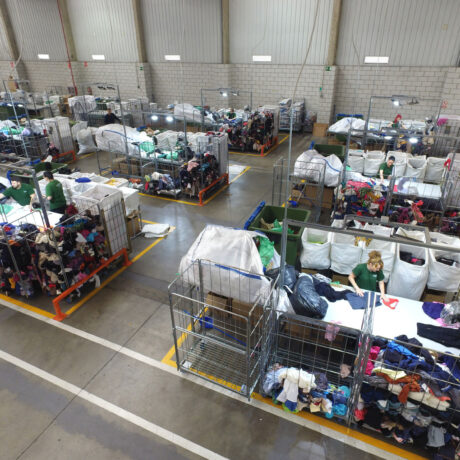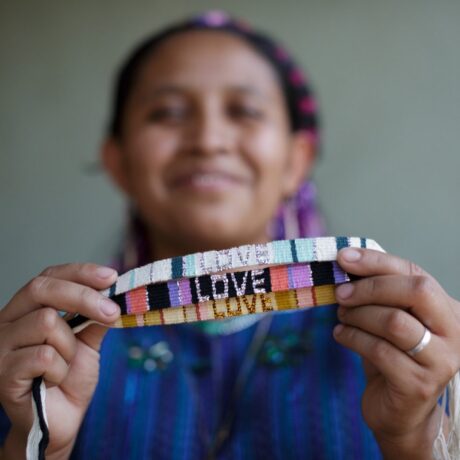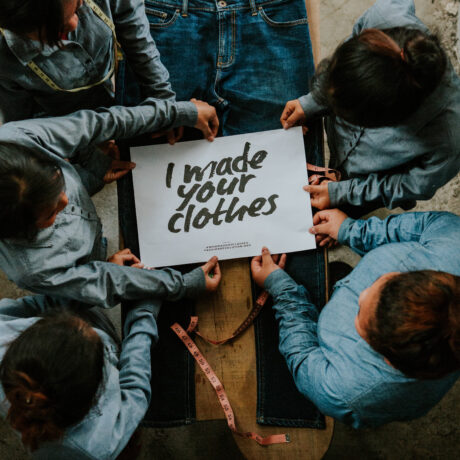SB62: Advocating for California’s Garment Workers
By Nathalia Orquera
Few people realize that Los Angeles is the center of the country’s garment manufacturing industry, housing the largest cut and sew apparel base in the U.S, most of whom are immigrant women from Mexico and Central America.
U.S. clothing factories employ about 200,000 people, with the greatest concentration in California. Los Angeles has more than 45,000 cutting and sewing operators alone, while in comparison, the New York City area employs less than 25,000 garment workers.
Garment workers in California face many of the same hurdles that garment workers overseas endure every day, from working in deplorable sweatshops condition, wage theft, abuse, to working an average of 55 hours a week with no overtime pay. Fast fashion is at the root of the many violations plaguing this industry. Cut and sew factories receive orders from large manufacturers often working for big brands, who are willing to produce items for little pay and with unrealistic manufacturer deadlines.
Despite the 1999 landmark Assembly Bill 633 (AB633) that sought to end wage theft in the garment industry, laws and protections continue to be circumvented so that retailers and manufacturers can avoid liability.
“This is a monumental occasion for the fashion industry and garment workers statewide because we haven’t seen any major reform to protect garment workers in over 20 years,” says Nicholas Brown, director of policy for Fashion Revolution USA. “This bill comes at a particularly crucial time, as many of these workers are facing the additional burden of exposure to COVID-19. California has the power to set the standard for safe, humane, and ethical labor practices in the garment industry that has the opportunity to be replicated well outside of Los Angeles.”
The new Garment Worker Protection Act (Senate Bill 62) co-authored by Senator Maria Elena Durazo and sponsored by Garment Worker Center, is a California bill that would improve working conditions in America’s largest garment industry by ensuring that brands share in the responsibility for garment worker pay under the law. SB62 would strengthen protections for garment workers in three essential ways by:
- Eliminating the use of the piece-rate system of pay, instead of ensuring that the legal hourly wage becomes the floor, not the ceiling, of wages paid to garment workers. The bill allows for incentive-based bonuses tied to productivity on top of the legal wage.
- Establishing multilateral accountability among brands and manufacturers for wage violations.
- Strengthening the authority of the Labor Commissioner’s investigation bureau to investigate and cite violations up the supply chain.
The piece-rate system compensates garment workers for each piece of clothing produced, as opposed to a set hourly wage. According to wage theft claims, some garment workers in L.A. are earning as little as $2.68 an hour through the piece rate system of pay, far below the LA minimum wage of $15 per hour for workplaces with 26 or more employees. According to the Garment Worker Center, the Covid-19 pandemic has only worsened their working conditions, where workers are often not given the time to wash their hands, factories are not sanitized between shifts or users, and bathrooms lack hand soap.
The California legislative cycle involves four different rounds of voting throughout the year. SB62 will start in a Senate subcommittee, get passed to the Senate, then the Assembly and then finally to the governor’s desk in the fall of 2021. On Monday, March 22, 2021, SB62 passed the CA Labor Subcommittee, which is the first vote in the process of getting this bill into law as it moves to the Senate Floor. On Tuesday, April 6, 2021, the bill passed through the Senate Judiciary Committee–the second of three committee hearings in the Senate, and another hopeful sign for the future of SB62. And on Monday, May 24, 2021, the bill passed through the full California Senate.
After the passing of SB62 in the Senate, the bill moved to the CA State Assembly to go through the committee process all over again in the second house. The Assembly made several amendments to SB62’s language, which had originally expanded upstream liability to retailers and brands.
On September 8, 2021, SB62 (with new amendments) passed the full CA State Assembly, only a few days shy of the September 10, 2021 deadline- the final day for any bill to be passed and the end of the 2021 legislative session.
However, this milestone and momentous victory of passing both houses was quickly eclipsed by last-minute political maneuvering. Despite receiving the backing of CA legislators, the bill was purposefully held and tied up in the Assembly, even after receiving a successful vote. SB62 needed to return to the Senate for a final approval of the amendments but had not been sent out of the Assembly.
On the last day of the legislative session, garment workers, fair wage and fashion advocates across the state, and organizations like the Garment Worker Center, Remake, PayUp, and FRUSA, began a late social media campaign and pressure to pass SB62. At the final hour, SB62 was finally resent to the Senate for final approval of the amendments and passed the full CA State Legislature. On September 17, 2021, SB62 was sent to CA Governor Newsom’s desk for the final step to become law, where it currently still awaits his signature or veto.
The fight to pass the Garment Worker Protection Act, SB62, is not over! Though SB62 passed the CA State Legislature, its fate currently rests with CA Governor Newsom, who has until October 10th to veto or sign bill.
Getting SB62 this far has come with many hurdles and truly has been a process decades in the making (with previous bills failing earlier in the past).
SB62 is a landmark legislation that has the potential to create industry-wide change by putting an end to the piece-rate system, paying fairer wages, and establishing basic workplace protections for CA garment workers.
To pass SB62, act now and contact Governor Newsom!
- Call Governor Newsom at (916) 445-2841.
- Urge him to stand up for garment workers and demonstrate his commitment to the minimum wage, fair working conditions, and corporate accountability by signing SB62 into law.
SB62 will become a historic step toward ending the modern sweatshop regime and will also help re-establish the United States as an epicenter of ethical manufacturing. As consumers we can help by holding brands accountable, understanding issues impacting garment workers’ rights, and sharing this information.
Join Fashion Revolution USA, Remake, and the Garment Worker Center in supporting California’s garment workers! Whether you live in the state of California or not, including residents of other nations, we encourage you to sign this petition and to share information about the importance of this bill with your friends, family and followers. And, watch “State of Play: Garment Worker Protections in the United States,” where we learned more of these key issues with Sen. María Elena Durazo, representing California’s Senate District 24; Dr. Elizabeth Segran, senior staff writer at Fast Company; Ayesha Barenblat, founder and CEO of Remake; Marissa Nuncio, director of Garment Worker Center; and Sarah Ditty, global policy director at Fashion Revolution.
Information for this article courtesy of Garment Worker Center and Remake.








